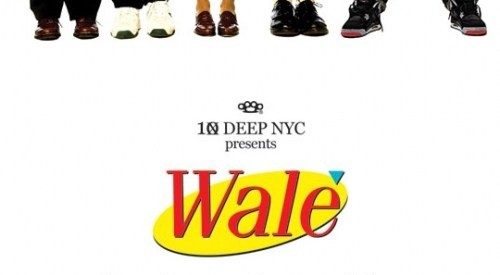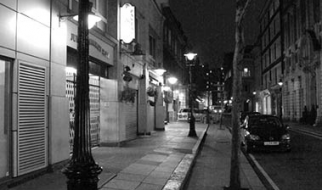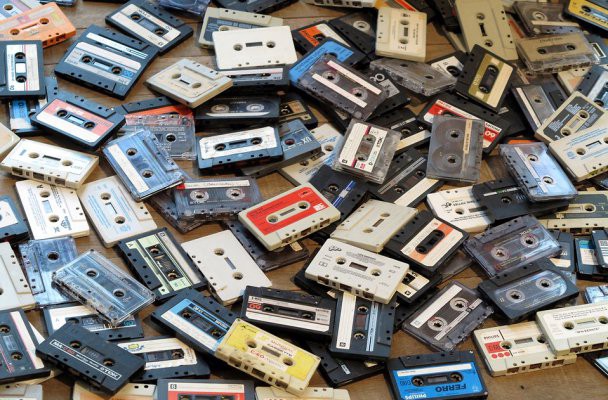
It?s unique to our particular cultural moment that a ?mixtape? is no longer necessarily something that?s passed between friends, or bought in the street, or downloaded from the internet and burned on to a Staples CD-R; but instead is something that can be released exclusively on Apple Music, to a largely expectant audience. That it?s something that can be released exclusively anywhere. Shit, that its something that is ?released?, instead of just randomly showing up on a jumbled shelf in your local record shop.
This year Chance The Rapper released ?Coloring Book?, his third ?mixtape?, exclusively on Apple Music, to a wholly expectant audience. The internet is long done with its ruminant digestion of the project, having chewed on it in Twitter and Facebook feeds until there were no new takes to drop, no new interpretations to make. In two days, ?Coloring Book? went from being unknown and excitedly awaited to being devoured and categorized, already stored away in the Internet?s MAY 2016 file. The same process befell other notable ?mixtapey? projects like Drakes ?If Your Reading This? and Kendrick?s ?Untitled/Unmastered?. ?Releases this hyped are like extremely contagious viruses that the internet manages to diagnose almost immediately, then store away until its time for the ?best of? lists to hit each December.
This is simply not how the world experienced mixtapes a decade ago, inasmuch as there was a collective mixtape experience. For a mixtape to make an impact ? think Wayne?s Dedication or Drought tapes ? there had to be a solid word of mouth campaign. You heard songs at parties, and tracked them down. You had to find tracks on Youtube, download tapes in compressed files from websites strictly for hip hop heads, or know someone who sold hard copies (an exceedingly rare proposition as time went on).
The difference between then and now lives in the definition of the world mixtape, and the changes to what unsigned hype looks like. Obviously, we live in a preferable time; right now it isn?t one or the other ? We have access to everything. Datpiff still exists; so does Apple music. But, if only for nostalgic purposes, there is something enviable about where the mixtape was ten or fifteen years ago. When you could stumble onto an artist or tape and feel a sense of ownership over it. You could champion artists who weren?t on the cover of XXL 3 years before they even put out a solo project. You lived contentedly with the idea that there was music out there you DIDN?T know about; music that you could find, would find, and would spread like a disease.
Here is a list of the ten best mixtapes that existed in that era:
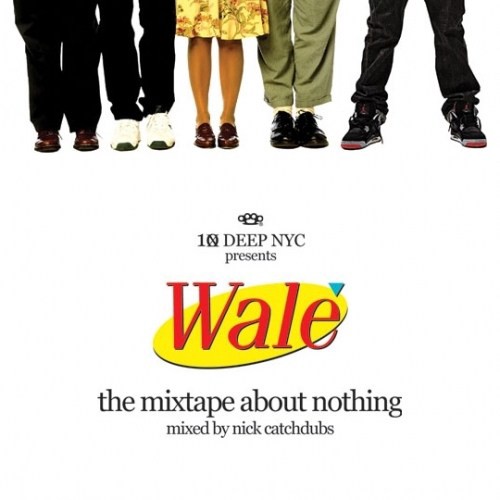
10. The Mixtape About Nothing ? Wale
DON?T CLOSE THIS WINDOW. Look, I can see how you might open a top ten list of anything, see Wale on it, and decide you?ve seen just about enough. But don?t close this window. You are projecting your feelings about 2016 Wale (if there is anything to feel about 2016 Wale). But 2008 Wale was a long way from here ? still an unsigned, unknown quantity; a strong lyricist with an identifiable go-go sound that gave him a sense of place. The Mixtape About Nothing , a Seinfeld crossover, was a natural fit for dorm room spins and internet think pieces.
Yes, he went on to be a part of possibly the worst XXL freshman class ever (shout out to Charles Hamilton?), and the cultural moment of backpack rap didn?t last as long as we thought it would. But back in summer of 2008, we didn?t yet know what Wale would be; and with The Mixtape About Nothing ? a complete album ? it seemed like he could be anything.
LISTEN TO: Seven years before Kendrick was thoughtfully ruminating on the Black American experience, Wale ? yes, Wale ? was just as thought-provoking and soul-baring on ?The Kramer?. ?The Kramer?, a track from The Mixtape About Nothing. For real. Go Listen to It.
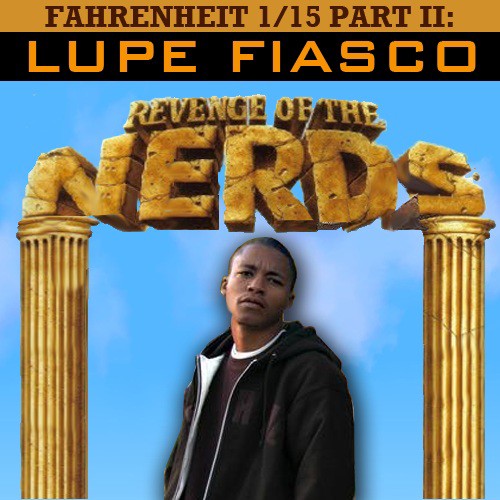
9. Fahrenheit 1/15 Part 2: Revenge of The Nerds ? Lupe Fiasco
The entire 1/15 trilogy could be here, but that just seems like a punt. Its arguable that A Rhyming Ape (part 3) is a tighter, more enjoyable offering, but it is only 8 tracks. Revenge of The Nerds (Part 2) is a much longer and fleshier tape, at 17 tracks that showed everything Lupe was capable of. Something happened to the Chicago emcee between then and now; he?s more marginal now; he?s somehow limited himself in terms of both content and style. Go back and listen to this tape. The man was at the peak of his powers, spitting fire on tracks like ?Mean and Vicious? and ?Switch?. Revenge of the Nerds shows, without question, how Lupe ascended the throne of ?our Greatest Emcee?, however briefly, off one album and a couple mixtapes. Sick.
LISTEN TO: Listen to Mean and Vicious, it?s got that bubbly, internal rhyme thing going on that Lupe does so well. Then listen to Switch, which is a masterclass in conscious rap as well as technical rhyming. Listen to it, run it back, listen again. Repeat. Honestly, listen to the whole thing.
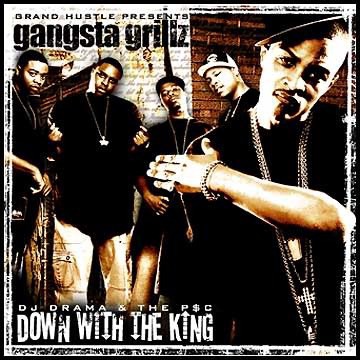
8. Down With The King ? T.I.
Remember Lil? Flip? No? That might be because in 2004, T.I. put this mixtape out and included a track called ?99 Problems (But Lil? Flip ain?t one)?; the equivalent of an scud missile aimed point blank at Flip?s grill. That one track is a standout, to be sure; it?s also a good representative of the whole Down With the King tape. T.I. had already put out 3 major label albums, but was still firmly a street EmCee. You weren?t exactly hearing the top tracks from Urban Legend (bring em? out, you don?t know me) EVERYWHERE like you would later with the inescapable top tracks from albums like King and Paper Trail. In 2004, when DWTK came out, T.I. was still close to being a rapper?s rapper; not exactly for mass consumption, save for one or two tracks, despite being downright prolific.
Well, consider Down With The King a semi colon mixed with an exclamation point after the first few years of T.I.?s career. Its still much more rugged than what the rapper would move on to, but the raw talent on display is explosive. There is no way you could have listened to this tape in 2004 and not realize T.I., was far, far greater than the sum of his career up to that point. Down With The King pointed at gigantic things coming, and come they did indeed.
LISTEN TO: The Lil Flip diss. Its extremely slept on in diss track conversations, probably because it was on a true mixtape and because it is such a thorough ethering that it didn?t encourage what you might call a lasting dialogue between competitors.
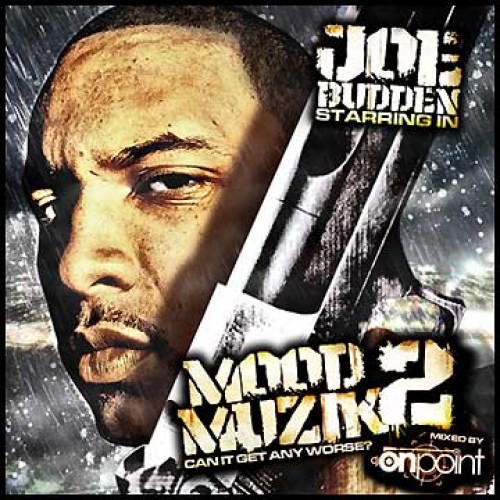
7. Mood Muzik 2: Can It Get Any Worse ? Joe Budden
Back in college, when things like this seemed extremely important, I remember there was always one kid in every hip hop conversation who behaved a certain way. It wasn?t always the same kid, but there was always one. There was always one kid that in any shoot-around about who was the best emcee, who was the most underrated rapper, what album was the best that year, whatever ? there was always one kid who stanned so hard for Joe Budden that the rest of us could only roll our eyes and move on.
Back then, Joe Budden didn?t have fans. Joe Budden had disciples. They carried his commercial failure as a collective cross to bear; shouting his name in any relevant conversation as though without the sheer volume of their voice, the world might forget Budden ever existed. And honestly, if it weren?t for tapes like Mood Muzik 2, the world might have forgotten Budden existed. The entire series is strong, but 2 is the best. It?s on this list for a couple reasons ?
- Its a shining example of how mixtape culture and internet culture collided and developed a simbiotic relationship in the mid-aughts. Joe Budden was basically a bench-warmer; no one liked ?pump it up? ? come on. Without the internet, Budden wasn?t even a bum; he was closer to a nobody. But he smartly used internet distribution to maintain relevance, by harnessing a group of fans that was rabid. It?s like Chris Rock?s old bit comparing hockey fans and heroin users. There were no casual Joe Budden fans. If you liked, you fucking loved it. So yea, as a singular example of an important cultural moment, Mood Muzik 2 deserves to be here.
- Its a shining example of how some artists are just better suited to smaller, more raw and personal projects with organic distribution. No one liked ?pump it up?, because ?pump it up? sucked. Budden wasn?t, and isn?t, suited to massive major label releases. Twitter isn?t waiting on Budden like they do for guys like Drake. But on Mood Muzik 2, he was a monster. He raps like a man possessed, like he?s sinking in the ocean and literally trying to rap hard enough to stay afloat. He smashes every track. The music is personal, confessional, saber-rattling, intense, scared. Its powerful. See, the annoying thing about that Budden kid in hip hop conversations was that he wasn?t wrong. Just, you know, give it a rest.
LISTEN TO: Are you In That Mood Yet?, So Serious, Dumb Out, 6 Minutes of Death
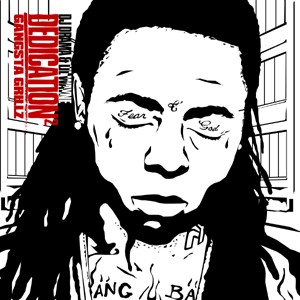
6. Dedication 2 ? Lil? Wayne
There was a multi-year period where Lil? Wayne convinced the world that he was the best rapper alive. Let?s first all go back and admit that technically, he never was. He was never the best at anything ? he didn?t have the best flow, he didn?t have the best punchlines, he wasn?t the most interesting ? entire verses of his were just unrelated similes that may or may not have even made sense.
But for a few years, Lil? Wayne was without question the best rapper alive. It was a fucking magic trick. Want to know how he pulled it off? Look no further than this mixtape, and others that (spoiler) appear later on this list. Wayne understood that the most important use of his energy was #content. He lived in a recording booth for about three years straight, just vomiting some of the most scattered, uneven, and inspired rap of all time. He transcended his own limitations just by working. He literally rapped his way from being the wobble-dee-wobble-dee-wop 14 year old in Juvenile songs to being a legit superstar. Wayne was the equivalent of a puncher, not a boxer. But, continuing that analogy, he would fight anyone, all the time, always, forever, and just punch his way to a victory.
Most of that content, most of that valuable verbal diarrhea, ended up on mixtapes like Dedication. Wayne may have saved his best work for albums like The Carter 2 and 3, but his second best work was better than most people?s best at the time. One of the most regrettable things about Wayne?s career is that twitter didn?t exist in its current incarnation when he was at the height of his career. Look at the internet hype surrounding Chance The Rapper right now. Now imagine it was 2006 and Dedication 2 was about to drop. Jesus.
LISTEN TO: Spitter, Cannon, Where The Cash At, Poppin them Bottles. The entire mixtape is so much of a specific time and place; you can?t go wrong. If you want to remember why in 2006, the rap world was obsessed with Lil Wayne, pop in Dedication 2.
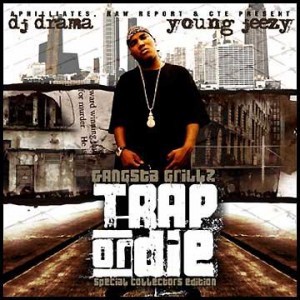
5. Trap or Die ? Young Jeezy
On the first track of Trap or Die, Jeezy growls about how he told DJ Drama this tape would change everything. He wasn?t necessarily right, but he definitely wasn?t necessarily wrong. Young Jeezy, transparently not a ?rapper? in the conventional sense at the beginning of his career, was the first of his ilk more ways than one. Rap has always been about place, history (peronsal and collective), street reporting, all that. But with Jeezy, you got the sense that he wasn?t an artist reflecting on some shared experience; he was the experience itself. He was a sentient Atlanta street corner.
Trap or Die barely preceded Jeezy?s first truly major album, and it serves as an announcement; that from now on, a certain type of music from a certain part of the country was going to sound a certain way. In Jeezy?s music, the dexterous, layered lyricism of T.I. ? a legacy passed down from Atlanta legends Outkast ? would be dialed down. Braggadocious drug references, shouty adlibs, and a clumsy, pulsing flow would be turned up. Tons of rappers have claimed represent the streets. Few were as much the genuine article as Young Jeezy when he arrived. And his style was PERFECT for mixtapes. This is gritty, raw music that feels almost criminal to be listen to. It deserved to be handed to you by a friend, in the form of an generic CD-R with some sharpie scrawled across it.
LISTEN TO: Trap or Die, the title track, featuring Bun B. and Slick Pulla, is a perfect Young Jeezy song. Perfect.
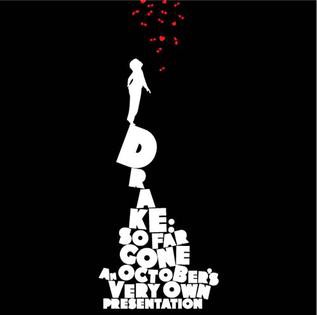
4. So Far Gone ? Drake
So far gone wasn?t Drake?s first, or even second mix tape; but it was the first one that really, truly mattered. Mattered so much, that it is viewed in retrospect as a de facto album. But when So Far Gone hit in 2009, it was still very much a surprise. Think about it as Drake the pokemon achieving his second form. Bits and pieces of the polished artist we hear on ?Views? are already there, alongside remnants of the developing voice of the emcee who doesn?t totally know who he is yet, and is still doing Wayne impressions. Whatever else you can say for ?So Far Gone?, it was genuinely huge. The break out it on it was ?Best I ever had,? an unstoppable force of a hit. But other songs like ?houstalantavegas? (smooth r and b), ?successful? (ditto), Uptown (southern rap-ish), Ignant shit (Jay-Z remix), showed the young artist?s limitless range.
Drake?s entire career has been framed by hype ? for his arrival, for his debut, for his next album, for his next feature, etc. There has been a never ending cavalcade of expectations heaped upon him that he has, frankly, met each time. ?So Far Gone? marks the beginning of that trend, as well as the dawning of a new superstar era. Not bad for a mixtape.
LISTEN TO: Succesful, Uptown, Ignant Shit, Best I ever had, Unstoppable
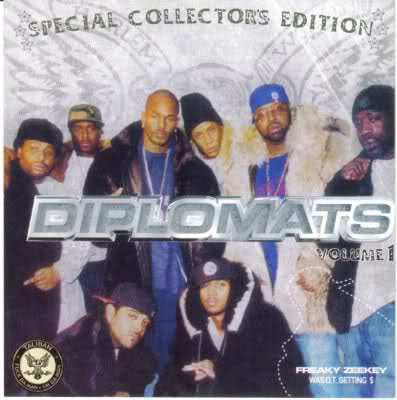
3. The Diplomats, Vol. 1 ? Dipset
In 2002, G-Unit was a lurking sensation, a power that we hadn?t fully come to grasp yet. In Da Club would hit in 2003, and it would be over. The 50 Cent era would have begun, and not much else would matter. The second most popular rap act to 50 would be so far below him for a couple years that 50 may has well have existed in a genre of his own. But this was 2002. And there was a different, realer, more pedigreed hip hop stable tearing up NYC and hip hop with one mixtape ? The Diplomats, Vol. 1.
Dipset was a victim of their time. They should have have existed a few years earlier, dovetailing with the too-short career of Harlem compatriot Big L. They shouldn?t have been lumped into a comparison with G-Unit. 50 Cent was mythical, from day one. Even though he was a certified bad ass with a gunshot survival story and a veritable street background, he existed as a packaged commodity the very moment we met him. He created an empire out of his own myth.
Cam?Ron, general of Dip set, was the opposite. He was more accessible, more realistic; this made him, his group, and his music more dangerous; more raw. 50 Cent seemed like a record label executive?s idea of gangster rap. A marketing executive?s drug dealer action figure. Dipset seemed legit, from head to toe. The Diplomats, Vol. 1 shows as much. There are surefire hits on it (Oh boy), but the real crown jewels are the apocalyptic sounding street rap tracks (Dial M 4 Murder, Ambitions of a Killa, Ruff Ryders) that served as a perfect foil to the other sounds coming out of New York in that moment.
Similarly to Jeezy, Dipset?s aesthetic was uniquely suited to the mixtape medium. It sounds like contraband, so it?s better off looking like contraband.
LISTEN TO: Just Fire ft. Beanie and Memphis Bleek, Ruff Ryders, Come Home With Me, Oh Boy
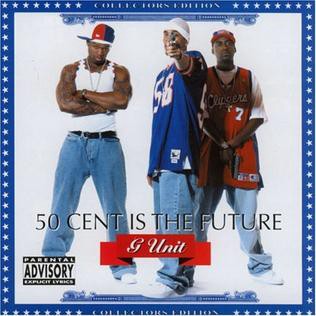
2. 50 Cent is the future ? 50 cent
Except for maybe an overdose of Tony Yayo bars, ?50 Cent Is the Future? is straight up as good as any G-Unit collaboration to follow it. Probably better. Take all the comparisons between dipset and G-unit that were written in the last entry and throw them out, if we are talking strictly about the ?50 Cent is The Future? tape. Sure, by the time ?Get Rich or Die Trying? came out, Fifty was already a gangster rap caricature. But this mixtape was still unburdened by the unit?s widespread success.
It?s almost impossible to describe what 50?s first mixtape sounded like in 2002. It sounded like inevitability. 50 was too charismatic. Banks was too skilled, too rugged. It was melodic, catchy, violent and misogynistic as fuck. It was so street. You couldn?t listen to the mix tape and not have a strong reaction. It was never ?ya this is pretty good? It was ?Dude?. Who the fuck is this??
?50 Cent is the future? is a time capsule ? back to when unsigned hype was unsigned HYPE. People waited on 50 Cent and G-Unit, in large part thanks to this tape. When Get Rich dropped it wasn?t a surprise success, it was a coronation. All because of a mixtape that came out before there were even mainstream mixtape websites. ?50 Cent Is The Future? was the cornerstone of a legitimate hip hop empire, and if you wanted to hear it you had to get a hard copy, burned CD?s, or maybe find it on limewire or napster if your were lucky.
If this entire feature is a nostalgic push back against the current incarnation of ?mixtapes,? experiences like finding ?50 Cent is The Future? are the reason why. Paradigm shifts in shitty jewel cases.
LISTEN TO: 50/Banks, G Unit Soldiers, The Banks Workout, Call Me
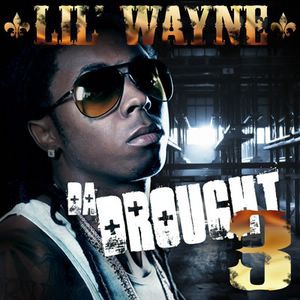
1. Da Drought 3 ? Lil Wayne
Here?s how Wayne said he chose songs to include on Da Drought 3, a 2 disc mixtape that is ridiculously dense and perfectly emblematic of Wayne?s talents: ?The radio be on and whatever song comes on, add that instrumental to it.?
Here?s something that really happened: Rolling stone listed Da Drought 3 in its TOP 50 ALBUMS of 2007 (#27, right in the meaty part of the bell curve.)
Here?s another real accolade: Pitchfork place Da Drought 3 at Number 99 on their list of the TOP 200 ALBUMS OF THE 2000?s.
Now, all this mainstream recognition might draw a natural comparison between DD3 and some of the ?Mixtapes? that come out today and function essentially like albums. No. ?Da Drought 3? has no original music on it. It has the shitty, photoshop artwork with gaudy lettering that is so entwined with the medium. It wasn?t released exclusively anywhere. Furthermore, at that point in Wayne?s career it wasn?t much more than another drop in a never ending torrent of content. Da Drought 3 ? implying there were 2 others; there were also a number of ?drought is over? tapes; there were a couple dedications; and I think Wayne was literally on every song that was release between 2006?2009. Tons and Tons of content.
Which means that Da Drought 3 transcended not only the Mixtape universe, but also Wayne?s rapidly growing discography. How did this happen? Simply, Wayne rapped his dick off on every single song on both discs of the Mixtape. He just takes batting practice off other people?s beats. Songs that were top ten on the billboard charts at the time, he lays waste to. When he was done on songs like ?Ride 4 My Niggas?, ?Dipset?, ?Blooded?, and ?Swizzy?, those instrumentals belonged to him.
Wayne was the pirate in Captain Phillips saying ?I?m the Captain now?. Mike Jones, Cam?Ron, Jeezy, Swizz beats ? they were all collectively Tom Hanks; mouth agape, disbelieving that this emaciated lunatic had simply walked in to their booths and easily wrested their beats right out of their hands. Even now, almost 9 years later, when you hear some of those beats, it?s impossible to remember who the original song belonged to. You remember the Wayne cut off ?Da Drought 3?.
Its probably true that no one ever understood the power of mixtapes like Wayne ? he was so prolific, he became undeniable. Lil Wayne didn?t just generate a torrent of content. He was the water, flowing downhill against whatever resistance lay ahead; and water, given enough time, always wins. It?s undefeated. It?s undeniable. ?Da Drought 3? was Lil Wayne?s watershed moment; the moment when each ?best rapper alive? boast was proven true; the moment when even doubters could only nod their heads and rap along. In some ways, it was the defining moment of Lil Wayne?s career. And it was only a mixtape ? only the greatest mixtape of all time.
LISTEN TO: Ride 4 My Niggas, Live from 504, Swizzy, Dipset, Upgrade, Back on My Grizzy
